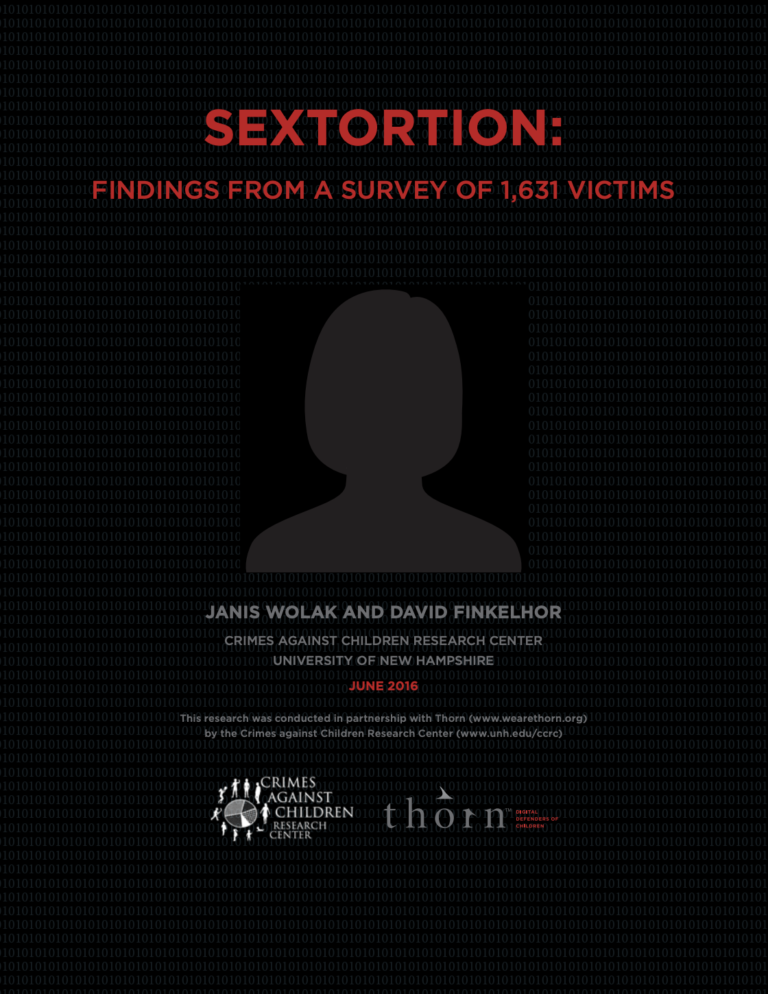Sextortion: Infographic from a Survey of 1,631 Victims
Below is the infographic for the report Sextortion: Findings from a Survey of 1,631 Victims, by the Crimes Against Children Research Centre and Thorn.
Janis Wolak and David Finkelhor
Sextortion is defined as threats to expose a sexual image in order to make a person do something or for other reasons, such as revenge or humiliation. In an effort to better understand the threat of sextortion and its impact on children, teens, and young adults, Thorn partnered with the Crimes Against Children Research Center (CCRC) at the University of New Hampshire in 2015 to conduct a first of its kind online survey of 1,631 persons ages 18 to 25 that have been targets of sextortion.

Below is the infographic for the report Sextortion: Findings from a Survey of 1,631 Victims, by the Crimes Against Children Research Centre and Thorn.
A sector-specific case example ‘The Swedish County Councils’ in-depth review of the human rights policies and due diligence of its IT contractor, Atea, and subcontractor, Dell, to respect workers’ rights has helped increase both companies’ ca...Read More
Written by Amber McKeen, Child Abuse Prevention Trainer at the Stephanie V. Blank Center for Safe and Healthy Children. This publication provides a definition of the Commercial Sexual Exploitation of Children (CSEC), or sex trafficking; lists t...Read More
“Here, the salary is not about what you bring to the table. I will never get the same salary as an Arab colleague. There is a lot of discrimination against people from Africa. We are only hired in some types of jobs - security, housekeeping, the k...Read More
In a constantly changing world, financial institutions must continually adapt to new risk factors. Regional or global crises like war or natural disasters, in particular, can trigger or fuel criminal activity and related risks,1 including MS/HT...Read More